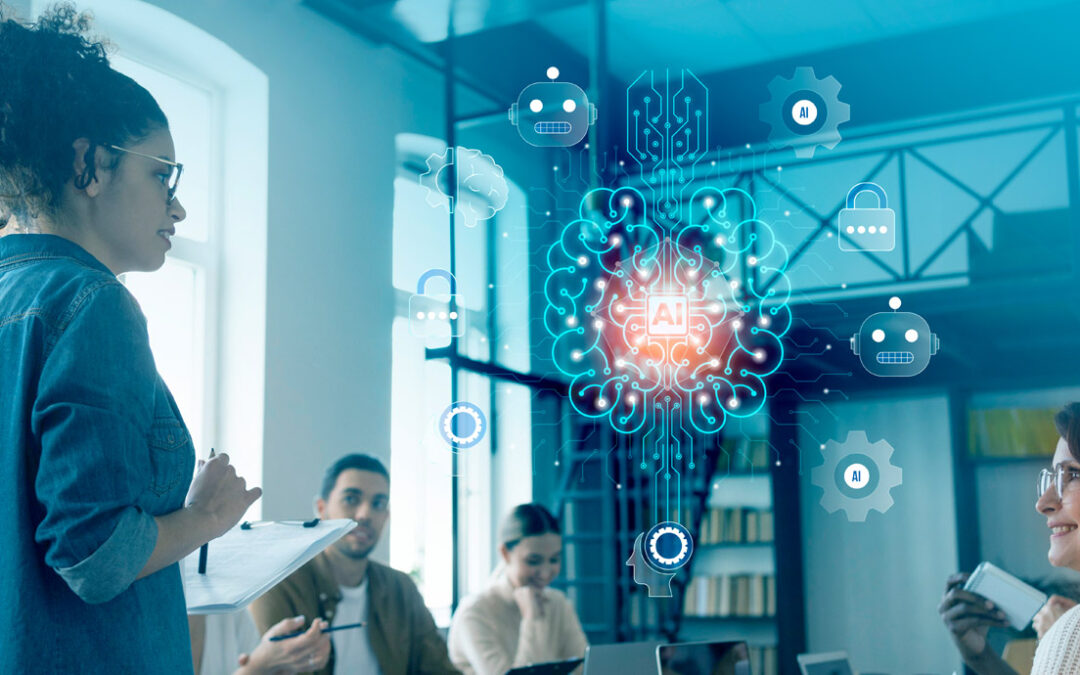The advent of ChatGPT has rekindled apocalyptic anxieties regarding artificial intelligence (AI) usurping human roles in the workforce. But how valid are these concerns? Recent findings reveal that while 62% of Americans anticipate AI will significantly influence jobs and employment within the next two decades, only 28% foresee a personal impact.
Experts from Harvard Business School weigh in on the potential shifts AI may introduce to the workforce and the crucial skills required for future success.
Prepare for Major Workforce Shifts
Today’s AI tools, powered by deep learning, are set to drastically alter the job market, phasing out numerous positions and modifying countless others. This shift will profoundly affect knowledge workers, historically shielded from automation and globalization, signalling a major transformation.
This change will mirror a pattern described in Ernest Hemingway’s The Sun Also Rises regarding bankruptcy: first gradual, then sudden. Businesses will initially adopt generative AI technologies like ChatGPT cautiously, necessitating the development of bespoke machine-learning systems and the acquisition of scarce talent.
“Expect swift organizational restructuring and significant reductions in white-collar personnel once the potential of generative AI is fully harnessed.”
Traditionally, businesses have focused on how new technologies can enhance existing processes. This mindset is outdated when considering the capabilities of generative AI, which will fundamentally reengineer processes, from contract negotiations to marketing strategies, to leverage AI’s full capacity.
As companies grasp how to transform their operations using cognitive AI, we’ll witness a significant displacement of white-collar workers, reliant on their expertise in complex processes and decision-making capabilities. Nonetheless, this will be somewhat balanced by new roles in machine learning and positions like prompt engineers, signaling a pivotal shift in the job landscape.
AI: A Complementary Tool Requiring Human Insight
In the near term, AI will serve as an invaluable aid, enhancing the efficacy of skilled professionals. While AI can autonomously complete specific tasks, akin to the Industrial Revolution’s impact, it will also enable humans to focus on more sophisticated tasks by employing new tools for enhanced productivity.
However, for certain tasks, AI will produce useful outputs that will still require human refinement to ensure success. Given that generative AI tools are designed to predict the most likely subsequent words rather than ascertain truths, their outputs may not always be reliable.
“These tools have a propensity to fabricate information, necessitating rigorous accuracy audits and human oversight to counteract inherent biases.”
Additionally, without human intervention, AI-generated content risks perpetuating existing biases, an issue that underscores the need for vigilant monitoring and adherence to ethical guidelines.
Embracing AI: A Necessity for Knowledge Workers
AI’s evolution promises to redefine roles, processes, and workflows. Distinguishing between AI applications aimed at enhancing products (external) versus those improving operational efficiencies (internal) is crucial. External applications could generate job opportunities by expanding a company’s offerings, while internal applications may affect the jobs of knowledge workers more directly.
“Automating routine tasks will allow knowledge workers to focus on areas where human insight is irreplaceable, fostering creativity and innovation.”
Looking ahead, the workforce is likely to divide into those who leverage AI to boost productivity and those who resist, potentially risking obsolescence. Embracing AI as a complementary tool is the strategic choice for knowledge workers aiming to adapt to the evolving work landscape.
Shift in Skillsets
Contrary to the dystopian view of AI usurping all jobs, the integration of new technologies traditionally shifts the demand for specific skill sets. With AI, tasks like programming and creative ideation will become more efficient, emphasizing the importance of skills related to refining AI outputs and fostering innovation.
The calculator’s introduction didn’t diminish the role of mathematics but altered the skills deemed valuable. Similarly, AI will not eliminate the need for human expertise but will change the nature of required skills, underscoring the importance of adaptability and continuous learning.
“AI presents an opportunity to significantly enhance value creation, requiring humans to adapt and optimize these technologies while mitigating potential downsides.”
The Imperative of Upskilling
Historical technological advancements have generally led to job creation rather than destruction. The primary concern should be the risk of obsolescence in the absence of a digital mindset, characterized by the ability to envision and navigate the future through data, algorithms, AI, and machine learning.
AI’s role in augmenting human performance is undeniable, as seen in various sectors. By focusing on upskilling and embracing new technologies, individuals and organizations can harness AI’s potential to revolutionize their capabilities and ensure resilience in the face of evolving job market demands.
At Ebani Tech, we thrive on innovation and jumping over hurdles of code and unforeseen challenges on an everyday basis. In fact that’s one of the things that we love at work. Beyond the stress and frustration of always being so close, yet many a time, a bit away… accepting the challenge and treading an undefined path is where discovery and eureka will be found. Currently, we are building a unique AI tech solution that is sure to be the future of almost all retail businesses. Watch out for us!!


